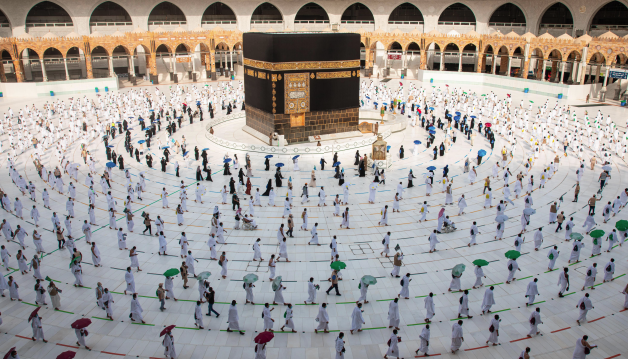
Tens of thousands of Muslims travelled to Saudi Arabia for the annual pilgrimage to Mecca despite the ongoing pandemic, in a scaled back version of the usual Hajj ceremony.
Usually more than two million people descend on Mecca each year for the experience, which every eligible Muslim must carry out at least once in their lifetime.
But with the onset of travel restrictions and social distancing, only 10,000 people were allowed to attend in 2020.
This year, that number had been increased to 60,000, all of whom had to be fully vaccinated, aged 18-65, and resident in Saudi Arabia.
More than 550,000 people applied to be among the chosen number, with an online pool deciding who would be permitted to go to Mecca’s Grand Mosque. Once there, worshippers were required to socially distance and wear face coverings.
The Hajj season has zero Covid cases thanks to the Saudi Authority health measures. This lack of access for so many people doesn’t merely affect those travelling to take part, but also has an impact on the entire business ecosystem that has built up around this huge annual event.
Not only does the Saudi Arabian economy rely on the huge number of visitors every year, but there are businesses around the world whose core remit is to assist Muslims in reaching Mecca.
This normally reliable stream of income being suddenly cut off has wider implications which are undoubtedly being felt in all corners of the globe.
With the Hajj being such a vital life experience and a source of livelihood for so many people, we can only hope that 2022 allows a return to the normal crowd numbers.
